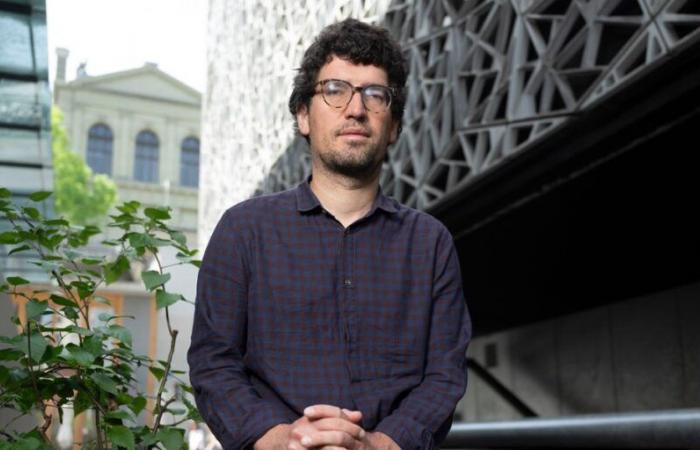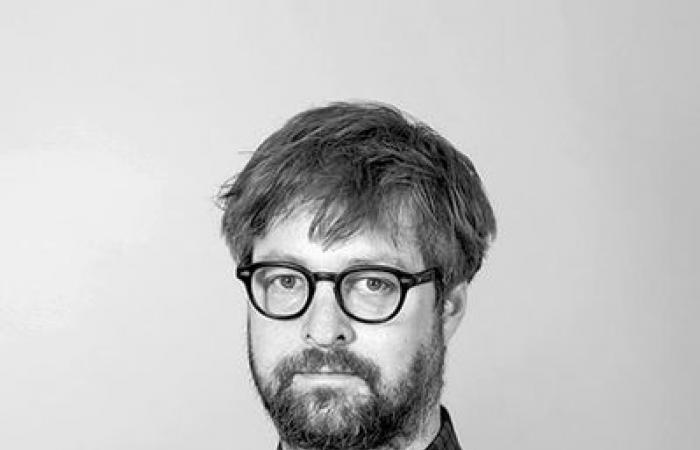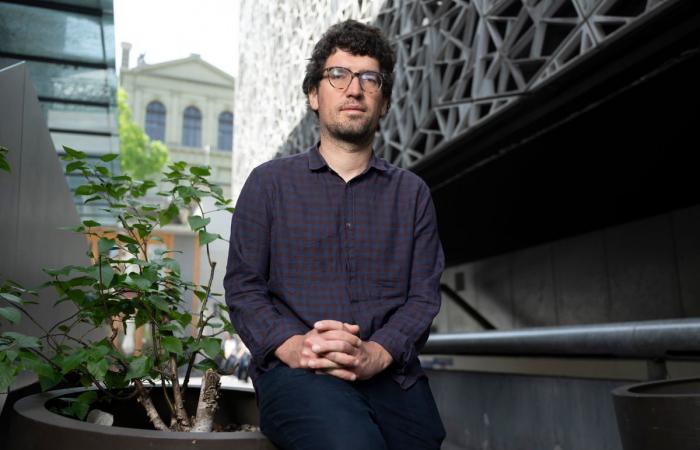ThoseVaudois tax shield –“The Council of State takes shelter behind tax secrecy to dodge annoying questions”
MP Hadrien Buclin requests a parliamentary commission of inquiry into the poor application of the tax shield. Interview with one of the few critical voices in the Parliament under the Broulis era.
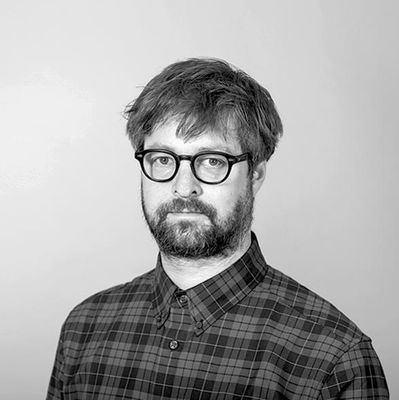
Posted today at 7:52 p.m.
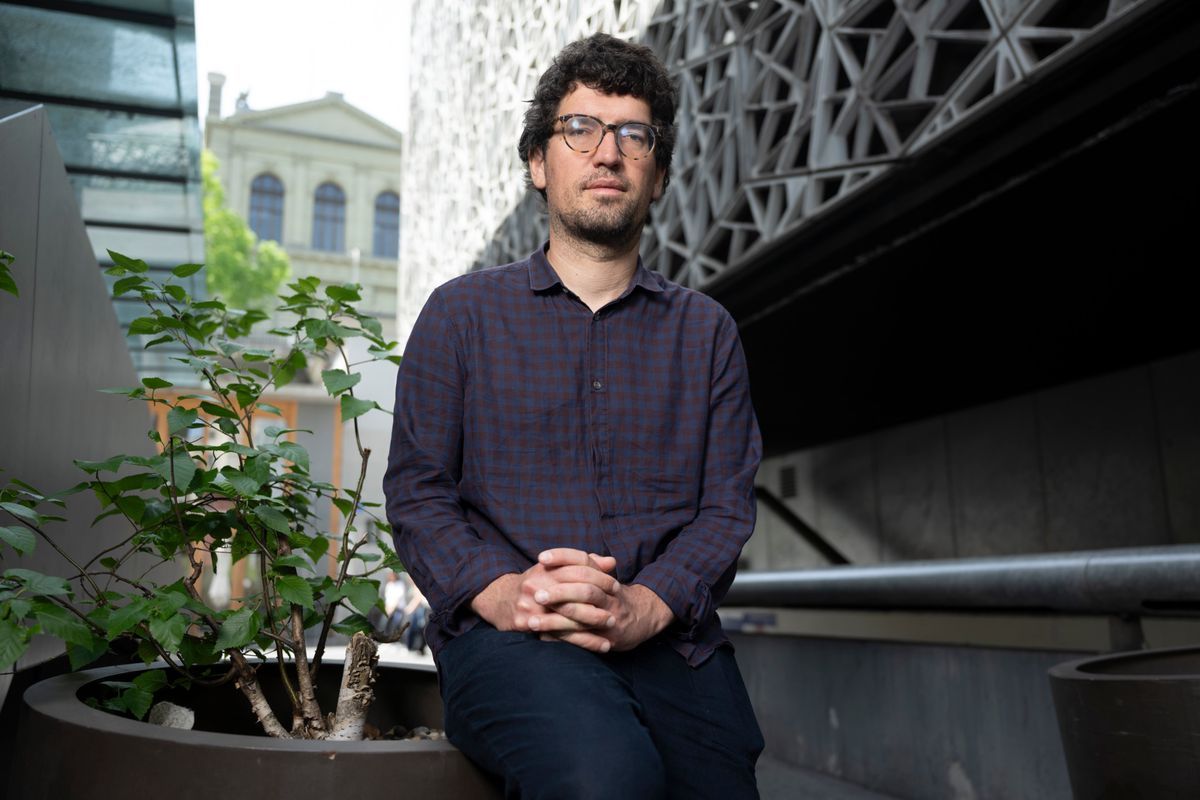
Hadrien Buclin, an overall deputy on the left, has been a member of the finance committee since 2017. He is even a sub-administration in the Finance Department. He seeks to file a request to launch a parliamentary commission of inquiry into the dysfunctions of the tax shield.
Florian Cella
Subscribe now and take advantage of the audio reading function.
- The cantonal tax administration has poorly applied the tax shield since 2009.
- MP Hadrien Buclin (EàG) wishes to launch a parliamentary commission of inquiry.
- The control bodies lack independence from the Council of State.
This spring, the canton of Vaud saw a real fireworks with its finances. In mid-March, there was The report of the independent expert Jean Studer On dysfunctions within the Finance Department. Its conclusions led the Council of State to withdraw this public policy in Valérie Dittli.
At the end of March, the state has published its 2024 accounts. These have a deficit of 369.2 million, forcing the government to immediately take sanitation measures.
In April, “Le Temps” reveals, after the careful reading of three law reviews, that the Cantonal Tax Administration (ACI) applied the tax shield mechanism to be wrongly between 2009 and 2021. State funds were probably missed by the tens of millions.
It started to frog Around the tax shield when the 2022 taxations fell. The biggest taxpayers, who benefit from this tax cap, felt the painful passing through a discreet legal modification made to the 2022 budget.
Calculation of the erroneous tax shield
At the dawn of 2024, The Council of State therefore asked An opinion at its legal service. Subsequently, the finance department ordered two others on its side. These law notices have remained confidential until recently. Even the finance committee could only make it a brief reading during a session on the 2025 budget project.
It’s a shame. The three opinions of law agree that the practice adopted by ACI since 2009 is contrary to the meaning of the law. Summary roughly, until 2021, the shield calculation was done without taking into account all the taxpayer’s income, when it would have been necessary to add them all.
These law notices are published on the site of the state of Vaud since Wednesday. But the case should not stop there. In any case, this is the wish of deputy Hadrien Buclin (Eàg). Member of the Finance Committee (Cofin) since 2017, he is looking to file a request for a parliamentary commission of inquiry (CEP) in order to shed light on dysfunctions related to the application of the tax shield and to the conduct of the finance department. He still lacks seven signatures of deputies to succeed. Interview.
What shocks you the most: a finance minister who requests the cancellation of taxations, or the poor application of the tax shield by the Cantonal Tax Administration (ACI)?
The two facts are very worrying. In both cases, we went to the limits of legality to satisfy very rich taxpayers, while the State is in a context of deficits and that a savings plan strikes public service. It questions.
You ask for a CEP while a delegation of finance and management commissions has been mandated to examine the dysfunctions in the finance department. Why immediately draw the big Bertha from parliamentary control?
At first, this delegation seemed appropriate to deepen the Studer report and the reproaches that were made to Madame Dittli. But, in the meantime, new facts have appeared, in particular the application of the tax shield which has apparently not been correct since 2009. To shed light on these long-term dysfunctions, a CEP seems to me the adequate tool. It makes it possible to summon former state advisers or former collaborators of the State. It is a more opportune tool in this case.
Indeed, the law notices of 2024, first of all that of the lawyer of the canton, note that it “is difficult to dispute” that the practice established in 2009 by ACI was contrary to the law. Why has no one looked into ACI’s practices over the past fifteen years?
-There have been several revisions of this tax shield. Some were carried out on the sly. Just a few lines in a presentation of the patterns, without any projection on tax revenue. There was the will to solve these problems without properly informing Parliament and its surveillance commissions.
The practice on maximum taxation was examined specifically last year following a lifting of shields from the environments concerned. We can reasonably ask questions about the general practices of ACI. Shouldn’t we broaden the field of investigations?
There is a margin of interpretation in the laws which is pushed to the limit of legality and which always goes in the direction of large taxpayers. We see him with Madame Dittli who asked to cancel taxations following the protests of Bernard Nicod and others. We see it as part of the application of the shield which did not take all the income, in order to underline, there too at the limit of legality.
The law is applied to promote the wealthiest. Conversely, modest taxpayers were treated very hard by the taxman, in particular with an increase in their tax office due to the abolition of a deduction for health insurance of 2,200 francs. There are two weights two measures, depending on whether you are powerful or miserable, as the fountain wrote.
The Studer report criticizes the fundamentalist interpretation of fiscal secrecy in the canton of Vaud. Has this absolute secret not prohibit any control over ACI practices, even on government tax policy?
It is true that the Council of State tends to shelter behind tax secrecy to dodge annoying questions. Tax secrecy is planned to protect people, especially their privacy. In this sense, it is legitimate. But too often the Council of State, even on more general questions which do not relate to a specific taxpayer, invoked tax secrecy to avoid giving estimates on loss of revenue, or when there have been questions around the tax exemptions granted to large companies. Yes, there is sometimes an abuse of this notion of tax secrecy.
The canton experienced a period with a council of hegemonic state, symbolized by the Broulis-Maillard duo. Have government parties put a lead on the surveillance commissions?
During the previous legislature, there was a hypercontrol of the information by the Council of State. It was very difficult to obtain information from the services concerned. This legislature is more open. And that is also what contributes, I think, to get out of the affairs that have remained under the carpet for a long time, which has a positive aspect for democratic transparency.
Have you observed a change of culture between Mr. Broulis and Madame Dittli?
I could have hoped for at first, because Madame Dittli said he wanted to be more transparent vis-à-vis the Parliament. But the Studer report shows that she also hid us a lot.
Until now, the Court of Auditors has never produced the slightest report on the ACI. The former cantonal finance control head, Marinette Kellenberger, was appointed in 2015 by the Council of State at the head of the taxation of taxation. And the last CEP on the Riviera-Chablais hospital above all highlighted the shortcomings of the surveillance commissions. Does the canton of Vaud have sufficiently independent control bodies?
I actually think they are too dependent on the executive. There would be simple solutions to strengthen their independence by being inspired by what is done at the federal level or in other cantons. I proposed that the cantonal finance control or chief of control is elected by the legislative and that his reports can be made public, as is done at the federal level, for the sake of transparency and to put pressure on the executive. Unfortunately, this proposal was refused. Likewise, one could envisage an election by the people of the magistrates of the Court of Auditors to give them more independence.
Cofin examines very technical objects such as taxation or budgetary construction. Commissioners are militiamen. On what technical expertise do they rely to exercise their supervisory mission?
It is true that we are very dependent on the Council of State. And when there are law notices which are communicated in a very limited way, as was the case with the tax shield, it makes exercise very difficult. There too, we see that in other cantons, such as Geneva, parliaments benefit from more important resources in terms of expertise. In the canton of Vaud, it is quite light, indeed.
Renaud Bournoud has been a journalist at the Vaudoise section of “24 hours” since 2012.More info
Did you find an error? Please report it to us.
2 comments

